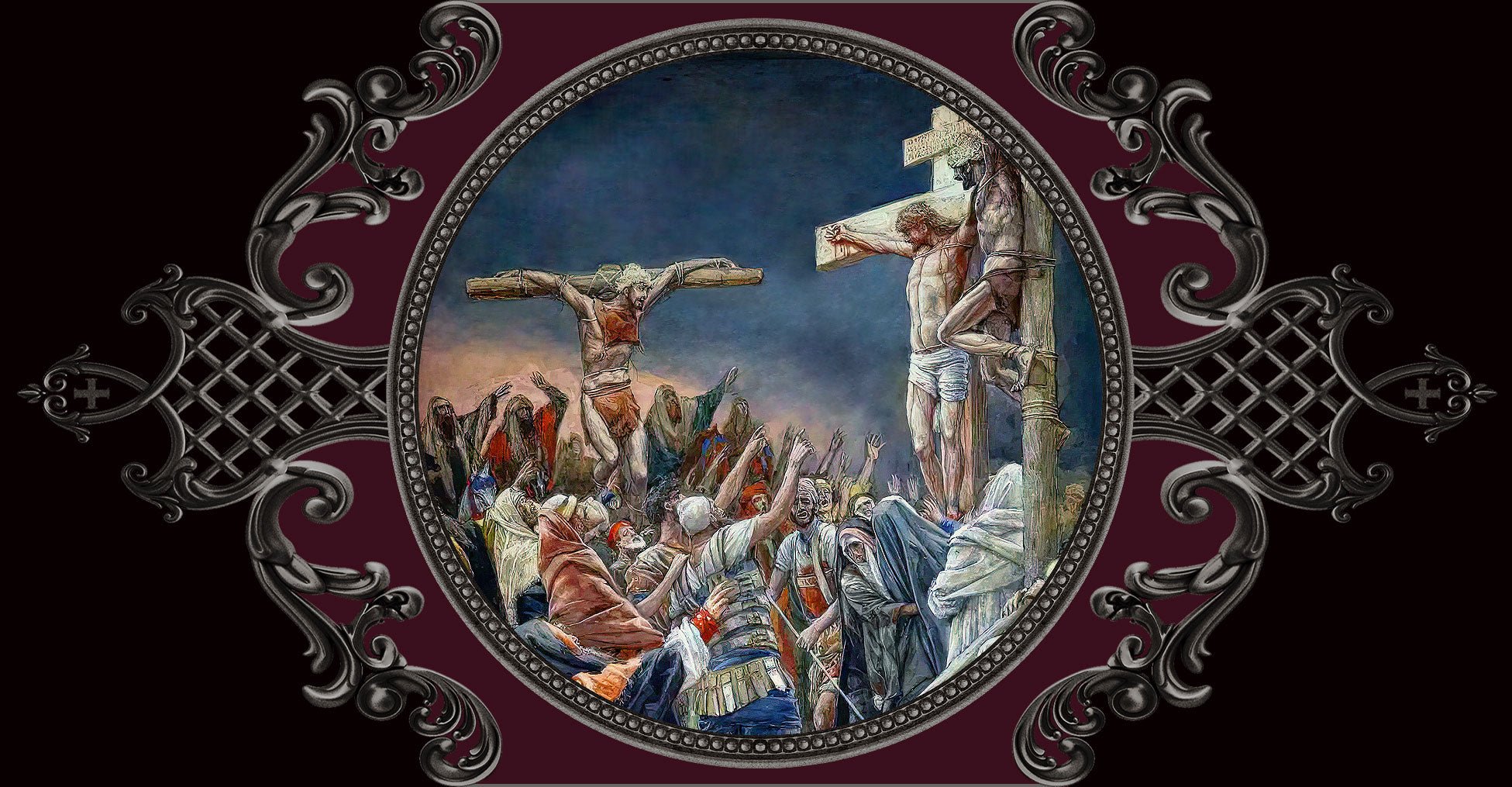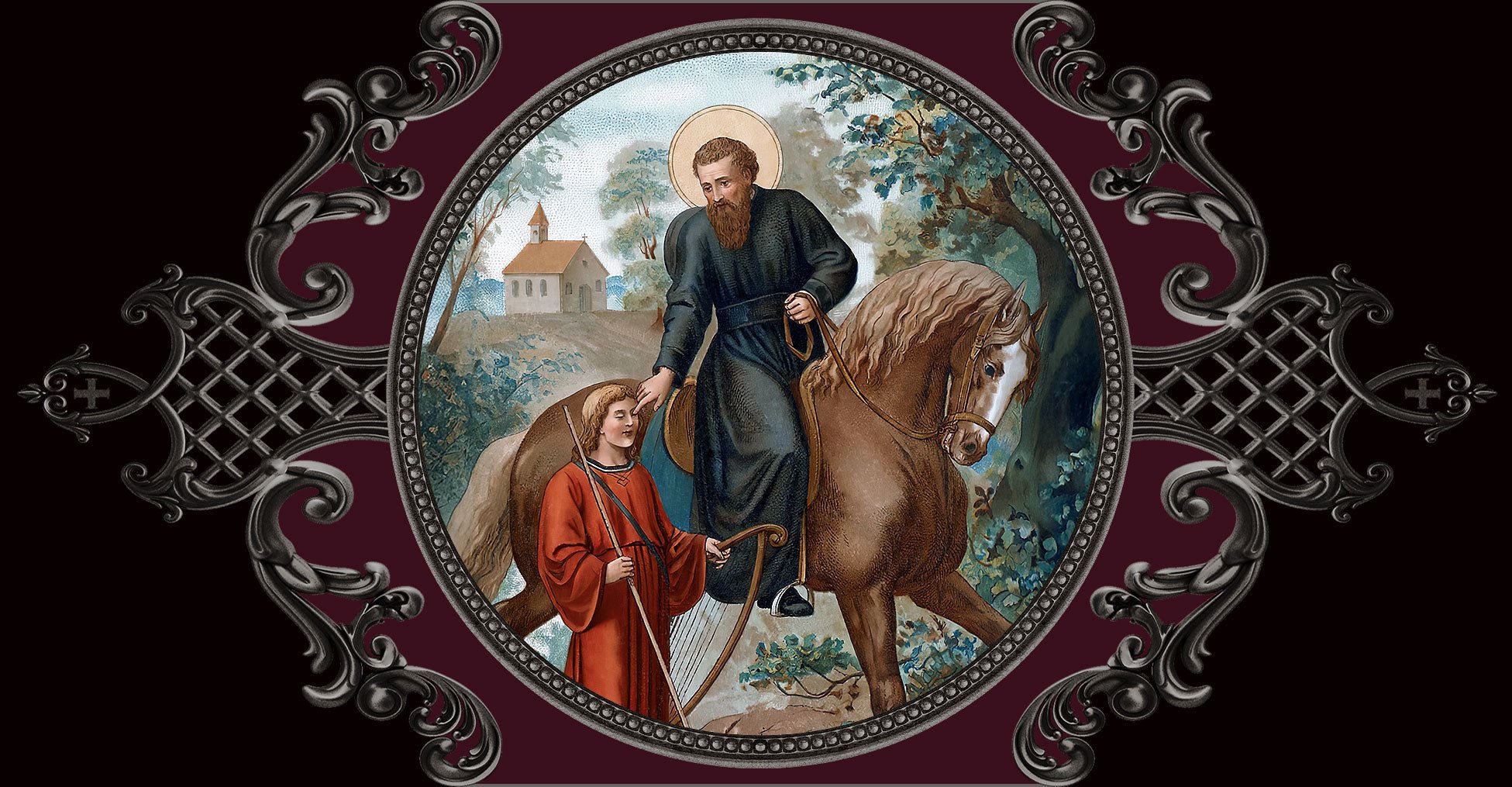
March 25 + Saint Dismas
The Scriptural Good Friday account gives us a glimpse of the lives of two men. Thieves by profession — each apprehended, tried, and sentenced. Until the last few moments of their lives, their stories couldn’t have been more similar. But in the last few moments of their lives, their stories couldn’t have been more different. And these were the moments that mattered.
As Our Lord hung on the Cross, flanked by two thieves, He could look down and see and hear those who were gleeful about His death. Driven mad by envy and a hatred that warps the minds of men, they were giddy about His demise. And not all who derided Him stood on the ground; one hung from another cross. The bad thief, as he is remembered, used his last ounce of energy to mock and blaspheme Jesus.
But not everyone at the Good Friday scene hated Jesus. The Blessed Virgin Mary, Saint Mary Magdalene and Saint John knelt near Jesus, courageously expressing their love, worship, and affection toward Him. And we have every reason to believe that Mary, Mary Magdalene and John were, at that moment, praying for the conversion of another. He was the other thief, whom history remembers as the good thief, Dismas.
When Dismas heard the blasphemy of the bad thief, Dismas responded: “We, indeed, are justly condemned to death on the cross: but this man hath done no evil.”
Dismas then continues speaking with words that will resonate until the end of time and resound throughout the vast chambers of eternity: “Lord, remember me when Thou shalt come into Thy kingdom.”
It’s hard to know what response Dismas was expecting from Jesus. Especially since Dismas was aware of something else: Jesus was suffering terribly and was almost unable to speak. In order to speak, Jesus had to push and drive His feet hard onto the nails on the cross to raise Himself, while simultaneously pulling Himself up by the nails in His hands. In other words, He needed to use the very instruments of His torture as an aid to speak words of mercy.
Jesus knew about every sin that Dismas had ever committed. He knew about the sins that Dismas could remember, and He knew about the sins that Dismas had probably long forgotten. He knew Dismas from all eternity. He loved Dismas from all eternity. And Jesus responded in a way that only the King of Glory could respond, saying: “Amen, I say to you, this day thou shalt be with Me in Paradise.”
Saint Augustine and Saint Cyprian regard Dismas as a martyr since he professed God even when most of the Apostles were absent. Dismas went on the cross a sinner, but came down a saint. Let’s always keep his beautiful words on our lips: “Lord, remember me when Thou shalt come into Thy kingdom.”



Leave a comment
This site is protected by hCaptcha and the hCaptcha Privacy Policy and Terms of Service apply.